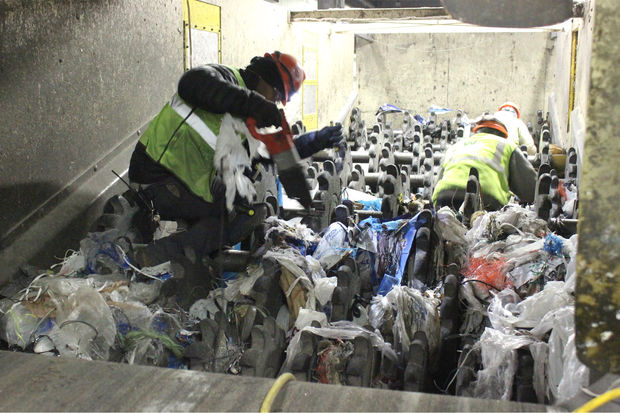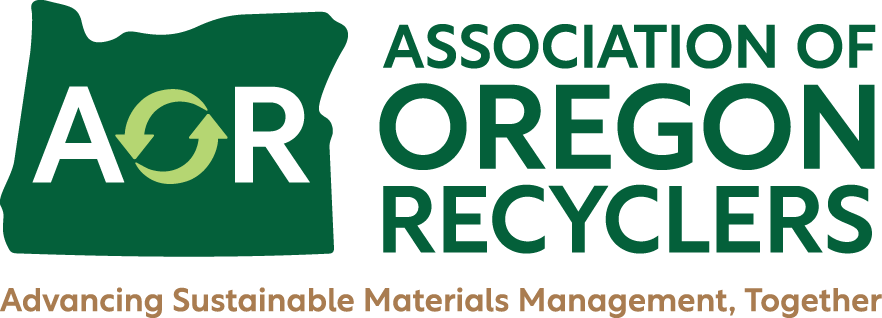Recycling
EPA Stresses the Importance of Recycling and Proper Disposal of Personal Protective Equipment
EPA is encouraging all Americans to recycle materials from their households and properly dispose of personal protective equipment (PPE), especially during the Coronavirus public health emergency. Recycling isn’t just good for the planet by reducing the amount of waste going to landfills and saving energy, it also supports American manufacturing.
NWRA urges Congress to prioritize waste and recycling industries in COVID-19 relief package
In a letter sent to congressional leaders May 5, the National Waste & Recycling Association (NWRA) calls upon legislators to prioritize critical infrastructure industries, including waste and recycling, in the next COVID-19 relief package that Congress will take up soon. The Department of Homeland Security’s Cybersecurity and Infrastructure Security Agency (CISA) designated the waste collection industry as essential in March.
Plastic bags continue to complicate curbside recycling
 Plastic film has long been identified as a major contaminant in municipal materials recovery programs. Research from the West Coast shows just how challenging it has been to educate residents around proper bag behavior.
Plastic film has long been identified as a major contaminant in municipal materials recovery programs. Research from the West Coast shows just how challenging it has been to educate residents around proper bag behavior.
As Recycling Dwindles, Supply Chains Are Buckling
When stay-at-home orders shuttered offices across the U.S. last month, one industry was especially hard hit: toilet-paper makers. Just as consumer demand for their product surged during the lockdown, they lost access to the cheap recycled office paper that’s typically used to make toilet rolls. That induced some of the world's biggest makers to switch to pulp sourced directly from trees, adding significant costs and harming the environment.
The Recycling Partnership releases West Coast Study
According to a study from The Recycling Partnership, large and mid-sized cities in California see an average contamination rate of around 20%, a finding that underscores the complications of aligning enthusiastic residents with local-program realities.
The Recycling Partnership, an organization that is backed by corporate stakeholders and is geared toward improving municipal recycling in the U.S., undertook research in 2019 to better understand material quality in communities of 50,000 people or more in California, Oregon and Washington.
(EPR) model approach by Resa Dimino and Bryce Hesterman of RRS
Recycling has been the subject of many negative headlines over the past two years: “The World’s Recycling is in Chaos;” “RIP: Recycling is Dead as We Know It;” “Recycling is a Waste.” The list goes on. Of the communities surveyed in The Recycling Partnership’s 2019 “The State of Curbside Recycling” report, more than 50 have canceled their recycling programs, and 29 percent have stopped collecting certain items.
Recycling rate declines continue in two West Coast states
California and Oregon recently reported lower statewide diversion rates, a trend that’s been ongoing for multiple years in both states.
Given the latest results, California will fall short of its 75% recycling rate goal for 2020, state officials acknowledged in their recent report.
In 2018, the Beaver State notched a 40.8% recovery rate, down from 41.6% in 2017, according to an April report from the Oregon Department of Environmental Quality (DEQ).
Lane County leads Oregon in recycling as statewide rate falls to lowest level since 2000
The Department of Environmental Quality recently released an analysis of waste recovery in Oregon for 2018, the most recent year for which numbers are available.
Lane County recycled and composted 53.8% of its trash in 2018.
WM Designs MRF of the Future to Address Ongoing Market Issues
In 2017, Waste Management (WM) began conceptualizing a materials recovery facility (MRF) that would help the company address two major ongoing market issues: high labor turnover rates and processing the highest quality materials for end markets.
Recycling and engineering teams at WM sat down and began designing a highly automated facility, known as Waste Management’s MRF of the Future, that would make high-quality material with the lowest labor possible.
Local companies now recycling plastic bottles and jugs
Republic Services, Rogue Disposal & Recycling, and Southern Oregon Sanitation announced today that the will begin recycling number one and two plastic bottles and jugs.
The three local waste management companies will now be accepting the items in curbside recycling carts and at local recycle depots.


